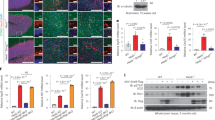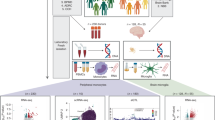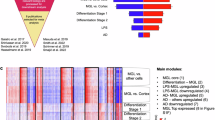Abstract
Gene therapies for lysosomal storage diseases (LSD) and peroxisomal diseases (PD) are rapidly advancing. Most LSDs and PDs are characterized by brain involvement, prompting the development of therapies targeting the brain. There are two types of gene therapy for brain involvement in LSD and PD, i.e., the direct transfer of a therapeutic gene into brain cells and hematopoietic stem cell-targeted gene therapy. The rationale for the latter approach is that brain microglia are derived from hematopoietic cells. Thus, gene-corrected hematopoietic cells migrate into the brain and differentiate into microglial cells. These gene-corrected microglial cells correct the metabolic defects associated with LSD and reduce inflammation in PD and LSD, leading to a clinical benefit. Gene editing technology has recently been applied in this area and a trial focused on LSD is currently ongoing. Although these approaches are still under investigation, very encouraging results have been obtained. This review provides an overview of recently developed gene therapies for various LSDs and PDs, including the results of clinical trials, with an emphasis on the benefits of this approach for these diseases.
Similar content being viewed by others
Log in or create a free account to read this content
Gain free access to this article, as well as selected content from this journal and more on nature.com
or
References
Hacein-Bey-Abina S, Von Kalle C, Schmidt M, McCormack MP, Wulffraat N, Leboulch P, et al. LMO2-associated clonal T cell proliferation in two patients after gene therapy for SCID-X1. Science. 2003;302:415–9.
Dunbar CE, Kohn DB, Schiffmann R, Barton NW, Nolta JA, Esplin JA, et al. Retroviral transfer of the glucocerebrosidase gene into CD34+ cells from patients with Gaucher disease: in vivo detection of transduced cells without myeloablation. Hum Gene Ther. 1998;9:2629–40.
Cartier N, Hacein-Bey-Abina S, Bartholomae CC, Veres G, Schmidt M, Kutschera I, et al. Hematopoietic stem cell gene therapy with a lentiviral vector in X-linked adrenoleukodystrophy. Science. 2009;326:818–23.
Eichler F, Duncan C, Musolino PL, Orchard PJ, De Oliveira S, Thrasher AJ, et al. Hematopoietic stem-cell gene therapy for cerebral adrenoleukodystrophy. N Engl J Med. 2017;377:1630–8.
Biffi A, Montini E, Lorioli L, Cesani M, Fumagalli F, Plati T, et al. Lentiviral hematopoietic stem cell gene therapy benefits metachromatic leukodystrophy. Science. 2013;341:1233158.
Sessa M, Lorioli L, Fumagalli F, Acquati S, Redaelli D, Baldoli C, et al. Lentiviral haemopoietic stem-cell gene therapy in early-onset metachromatic leukodystrophy: an ad-hoc analysis of a non-randomised, open-label, phase 1/2 trial. Lancet. 2016;388:476–87.
Tardieu M, Zerah M, Husson B, de Bournonville S, Deiva K, Adamsbaum C, et al. Intracerebral administration of adeno-associated viral vector serotype rh.10 carrying human SGSH and SUMF1 cDNAs in children with mucopolysaccharidosis type IIIA disease: results of a phase I/II trial. Hum Gene Ther. 2014;25:506–16.
Tardieu M, Zerah M, Gougeon ML, Ausseil J, de Bournonville S, Husson B, et al. Intracerebral gene therapy in children with mucopolysaccharidosis type IIIB syndrome: an uncontrolled phase 1/2 clinical trial. Lancet Neurol. 2017;16:712–20.
Smith BK, Collins SW, Conlon TJ, Mah CS, Lawson LA, Martin AD, et al. Phase I/II trial of adeno-associated virus-mediated alpha-glucosidase gene therapy to the diaphragm for chronic respiratory failure in Pompe disease: initial safety and ventilatory outcomes. Hum Gene Ther. 2013;24:630–40.
Sharma R, Anguela XM, Doyon Y, Wechsler T, DeKelver RC, Sproul S, et al. In vivo genome editing of the albumin locus as a platform for protein replacement therapy. Blood. 2015;126:1777–84.
Laoharawee K, DeKelver RC, Podetz-Pedersen KM, Rohde M, Sproul S, Nguyen HO, et al. Dose-dependent prevention of metabolic and neurologic disease in murine MPS II by ZFN-mediated in vivo genome editing. Mol Ther. 2018;26:1127–36.
Author information
Authors and Affiliations
Corresponding author
Ethics declarations
Conflict of interest
T. Ohashi have active research support from Sanofi Genzyme Corporation, Sumitomo Dainippon Pharma and Avrobio, Inc. . These activities have been fully disclosed and are managed under Memorandum of Understanding with the Conflict of Interest Resolution Board of the Jikei University School of Medicine.
Rights and permissions
About this article
Cite this article
Ohashi, T. Gene therapy for lysosomal storage diseases and peroxisomal diseases. J Hum Genet 64, 139–143 (2019). https://doi.org/10.1038/s10038-018-0537-5
Received:
Revised:
Accepted:
Published:
Issue date:
DOI: https://doi.org/10.1038/s10038-018-0537-5
This article is cited by
-
Intracerebral lentiviral ABCD1 gene therapy in an early disease onset ALD mouse model
Gene Therapy (2023)
-
Outcome of haematopoietic cell transplantation in children with lysosomal acid lipase deficiency: a study on behalf of the EBMT Inborn Errors Working Party
Bone Marrow Transplantation (2023)
-
Enzymtherapien in der Neurologie
psychopraxis. neuropraxis (2020)
-
Lysosomal storage diseases: current therapies and future alternatives
Journal of Molecular Medicine (2020)



